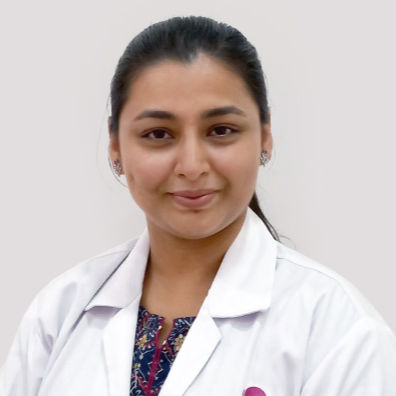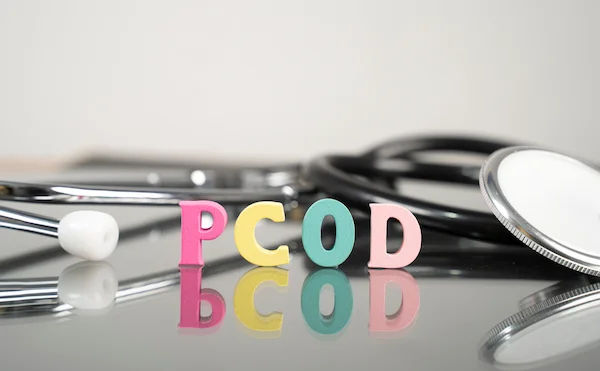Difference Between PCOS and PCOD Explained
Know about PCOD,PCOS, symptoms, causes and key differences between them, diagnosis and tips on how to manage them successfully.


Introduction
If you've ever heard the terms PCOS (Polycystic Ovary Syndrome) and PCOD (Polycystic Ovary Disease) used interchangeably, you're not alone. Many people assume they mean the same thing, but there are key differences between the two. Understanding these differences can help you take better care of your health and seek the right treatment if needed.
Let’s break it down in simple terms.
What is PCOD?
PCOD (Polycystic Ovary Disease) is a condition where the ovaries produce immature or partially mature eggs, which can turn into cysts over time. This leads to enlarged ovaries and hormonal imbalances.
Consult Top Gynaecologists
Symptoms of PCOD
The symptoms of PCOD are:
Irregular or missed periods
Heavy bleeding during periods
Weight gain
Acne and oily skin
Hair loss or excessive facial hair (hirsutism)
Difficulty getting pregnant
Causes of PCOD
The causes of PCOD include:
Hormonal imbalance (high levels of androgens—male hormones)
Insulin resistance (body struggles to use insulin properly)
Genetics (runs in families)
Lifestyle factors (poor diet, lack of exercise, stress)
PCOD is more common and can often be managed with lifestyle changes.
What is PCOS?
PCOS (Polycystic Ovary Syndrome) is a more severe metabolic disorder that affects not just the ovaries but also the body's insulin levels, heart health, and overall hormonal balance.
Symptoms of PCOS
All symptoms of PCOD, plus:
Severe insulin resistance (leading to diabetes risk)
Dark patches on skin (acanthosis nigricans)
Higher risk of heart disease and high blood pressure
Sleep apnea (breathing problems during sleep)
Causes of PCOS
The causes of PCOS include:
Strong genetic link
Chronic insulin resistance
Inflammation in the body
PCOS is less common but has more serious long-term health risks if left untreated.
Key Differences Between PCOD and PCOS
How Are They Diagnosed?
Both conditions are diagnosed through:
Blood tests (hormone levels, insulin, cholesterol)
Pelvic ultrasound (to check for cysts)
Medical history review
If you experience symptoms like irregular periods, excessive hair growth, or sudden weight gain, consult a doctor for proper diagnosis.
How to Manage PCOD & PCOS?
1. Dietary Changes
Foods to eat and avoid include:
Eat whole foods: Fruits, vegetables, whole grains, lean proteins.
Avoid sugar & refined carbs: They worsen insulin resistance.
Healthy fats: Nuts, seeds, olive oil help balance hormones.
2. Regular Exercise
Regular exercises include:
30 minutes daily (walking, yoga, strength training).
Helps in weight management and insulin sensitivity.
3. Stress Management
Practice meditation, deep breathing, or hobbies to reduce stress.
4. Medical Treatment
Medical treatment options include:
Birth control pills (to regulate periods).
Metformin (for insulin resistance).
Fertility treatments if trying to conceive.
When to See a Doctor?
If you notice:
Irregular or painful periods
Unexplained weight gain
Excessive hair growth or hair loss
Difficulty getting pregnant
Final Thoughts
While PCOD and PCOS share some similarities, PCOS is a more serious condition with long-term health risks. Both can be managed effectively with lifestyle changes, diet, and medical support.
Consult Top Gynaecologist
Consult Top Gynaecologists

Dr. Parul Sharma
Obstetrician and Gynaecologist
8 Years • MBBS, MS (Obstetrics & Gynaecology)
New Delhi
THE DOCTORS NESST, New Delhi

Dr. Debajyoti Goswami
Obstetrician and Gynaecologist
10 Years • MBBS,D.G.O(DNB),Adv. Infertility Tech.(AIIMS),Fellowship in Diabetes(U.K),Comprehensive Abortion Care(Govt. Of W.B), Certificate in Clinical Embryology(AIIMS, BHUBANESWAR)
Bankura
D.G Clinic, Bankura
(25+ Patients)

Dr. Asha Rani Singh
Obstetrician and Gynaecologist
24 Years • MBBS DGO
Delhi
Dr Asha Rani Singh Clinic, Delhi

Dr. Harshitha B R
Obstetrician and Gynaecologist
11 Years • MBBS, DGO( OBS & GYN)
Bengaluru
Apollo Clinic, JP nagar, Bengaluru

Dr. Aanchal Agarwal
Obstetrician and Gynaecologist
9 Years • MBBS, MS, DNB,( Fellowship in Obst. Gynae. ultrasound )
Kolkata
Sanjeewan clinic, Kolkata
Consult Top Gynaecologist

Dr. Parul Sharma
Obstetrician and Gynaecologist
8 Years • MBBS, MS (Obstetrics & Gynaecology)
New Delhi
THE DOCTORS NESST, New Delhi

Dr. Debajyoti Goswami
Obstetrician and Gynaecologist
10 Years • MBBS,D.G.O(DNB),Adv. Infertility Tech.(AIIMS),Fellowship in Diabetes(U.K),Comprehensive Abortion Care(Govt. Of W.B), Certificate in Clinical Embryology(AIIMS, BHUBANESWAR)
Bankura
D.G Clinic, Bankura
(25+ Patients)

Dr. Asha Rani Singh
Obstetrician and Gynaecologist
24 Years • MBBS DGO
Delhi
Dr Asha Rani Singh Clinic, Delhi

Dr. Harshitha B R
Obstetrician and Gynaecologist
11 Years • MBBS, DGO( OBS & GYN)
Bengaluru
Apollo Clinic, JP nagar, Bengaluru

Dr. Aanchal Agarwal
Obstetrician and Gynaecologist
9 Years • MBBS, MS, DNB,( Fellowship in Obst. Gynae. ultrasound )
Kolkata
Sanjeewan clinic, Kolkata




.webp)